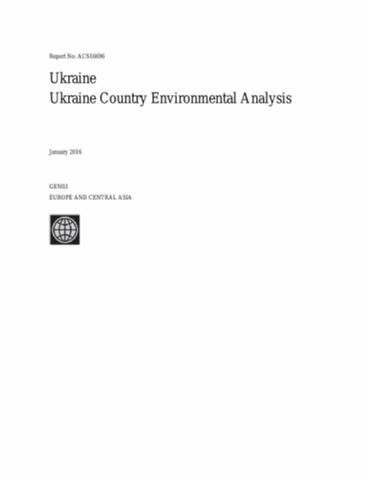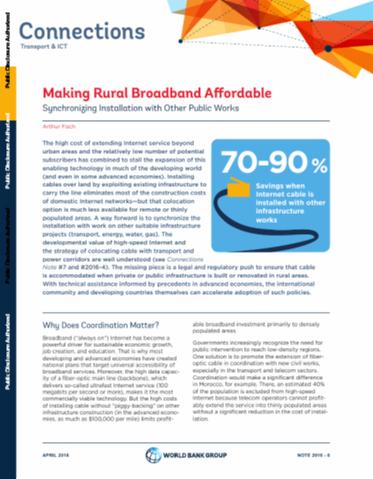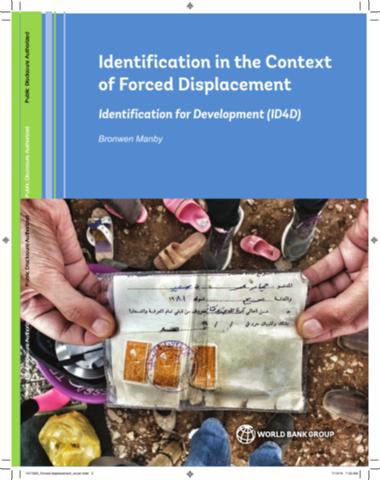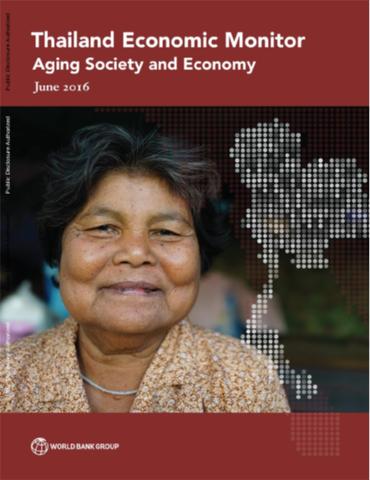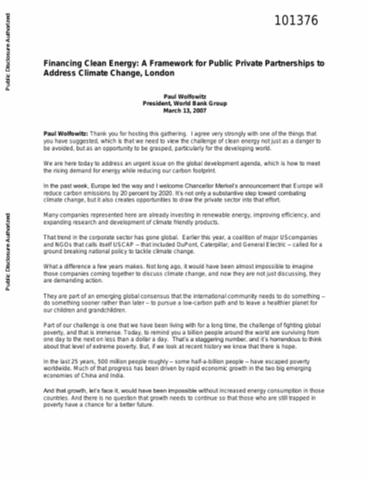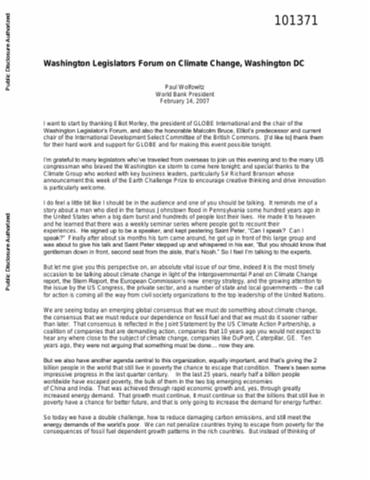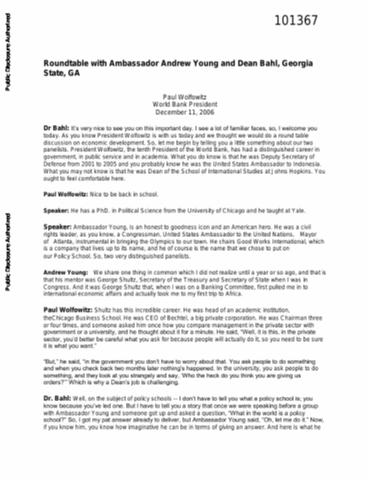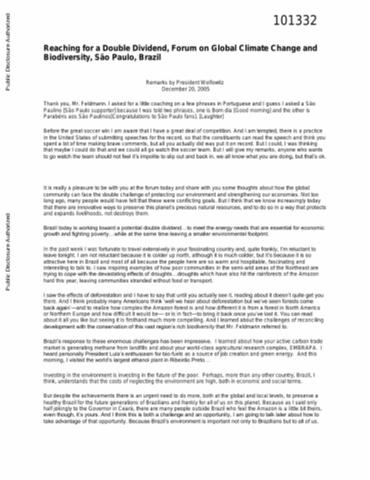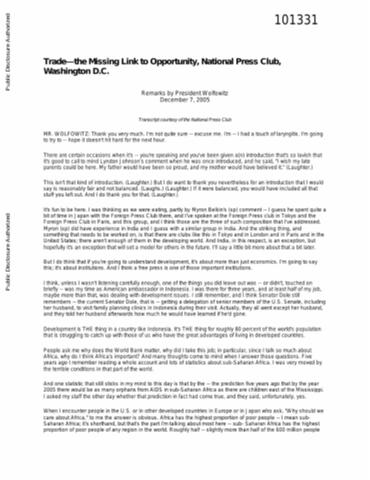
Topics and Regions
Details
Location
Contributions
Displaying 501 - 510 of 630Ukraine Country Environmental Analysis
The objective of the Country Environmental Analysis (CEA) is to assess the adequacy and performance of the policy, legal, and institutional framework for environmental management in Ukraine, in light of the decentralization process of environmental governance and wider reform objectives, and to provide recommendations to government to address the key gaps identified. Ukraine is the second largest country in Europe and has a population of 43 million, the majority of whom live in urban areas.
Making Rural Broadband Affordable
The high cost of extending Internet service beyond urban areas and the relatively low number of potential subscribers has combined to stall the expansion of this enabling technology in much of the developing world (and even in some advanced economies). Installing cables over land by exploiting existing infrastructure to carry the line eliminates most of the construction costs of domestic Internet networks—but that colocation option is much less available for remote or thinly populated areas.
Climate-Smart Agriculture Indicators
There is by now substantial consensus within the development community over the need for a more climate smart agriculture, which consists of three defining principles: enhancing agriculture’s resilience to climate change, reducing agricultural green-house gas emissions, and sustainably increasing production. With 795 million people still not getting their minimum dietary requirements, there is little scope for trade-offs between increasing production and improving agriculture’s environmental impacts.
Identification in the Context of Forced Displacement
Lack of identity documents is an important obstacle to the protection of people forced to leave their homes by conflict, persecution, or natural disaster. At the most basic level, a person lacking identity documents cannot travel through the legal channels. Lack of identification can make people more vulnerable to trafficking, for example by making it more difficult to prove a person’s age or family relationships. Those who lack identity documents may face greater difficulties proving their entitlement to nationality or to refugee status.
Thailand Economic Monitor, June 2016
The Thai economy shows signs of a nascent recovery but faces challenges on the path toward a broad-based and sustained recovery. The Thai economy accelerated to 2.8 percent in 2015, compared to 0.9 percent in 2014, partly on the basis of government consumption and investment, and partly on declining imports. Tourism and private consumption have mildly recovered, whereas merchandise exports dropped in the last quarter of 2015.
Financing Clean Energy
Paul Wolfowitz, President of the World Bank, discussed how to meet the rising demand for energy while reducing our carbon footprint. Rich countries need to lead by example, renovating and replacing infrastructure and investing in clean technology. Rich countries also need to lead with direct support to developing nations, both to reduce poverty and reduce carbon emissions. Moving to a low carbon path will require investments, and a long-term equitable global regulatory framework to reduce greenhouse gas emissions.
Remarks at Washington Legislators Forum on Climate Change, Washington, D.C., February 14, 2007
Paul Wolfowitz, President of the World Bank, remarked that we are seeing today an emerging global consensus that we must do something about climate change. But equally important is the agenda to reduce poverty. We face this double challenge of reducing damaging carbon emissions, and still meeting the energy demands of the world’s poor.
Roundtable Discussion on Economic Development, Georgia State, GA, December 11, 2006
Paul Wolfowitz, President of the World Bank, and Ambassador Andrew Young engaged in a roundtable discussion on economic development, moderated by Dean Bahl of Georgia State. Wolfowitz has made Africa the first priority of the Bank. There is really a chance for Africa to turn the corner. It’s going to have to start with the best performers, doing what the so-called Tigers did in East Asia, showing the way for other countries. Young said you can make more money honestly in a growing economy, than you can steal in a dying economy. Wolfowitz gave examples of the turnaround in Africa.
Reaching for a Double Dividend
Paul Wolfowitz, President of the World Bank, shared his thoughts about how the global community can face the double challenge of protecting our environment and strengthening our economies. Brazil is working to turn this double challenge into a double dividend, by meeting energy needs that are essential for growth and fighting poverty, while leaving a smaller environmental footprint. Investing in the environment is investing in the future of the poor.
Trade
Paul Wolfowitz, President of the World Bank, argued that the Doha Round presents an opportunity to rewrite the rules of an unfair trading system that holds back the potential of the poorest people. As important as aid is, as important as debt relief is, the opportunities generated by trade are far more significant. Unless the people of Africa and other poor countries have access to markets to sell their products, they will not escape poverty or be able to give their children a better future.

